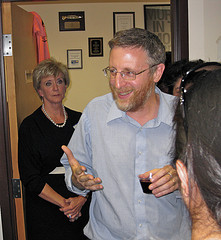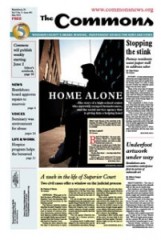What does the future of non-profit news look like? Maybe not as bright as we had hoped.
Nieman Journalism Lab director Joshua Benton gave a talk recently on “Eight Trends for Journalism in 2011.” There are a lot of interesting nuggets, and I want to give it a more careful read later. (Thanks to Jay Rosen for flagging it on Twitter.) But I was particularly struck by Benton’s prediction that we may have reached a peak in non-profit journalism, and that the slogging will be tougher from here on out. Benton writes:
I do think that 2011 is going to see some trimming back, because a lot of these news organizations were started on initial gifts from very well intentioned wealthy people, or local foundations that gave lump-sum payments. And a lot of them are having a real difficult time transitioning to anything that looks sustainable.
The non-profit project I follow most closely is the New Haven Independent. Benton’s prediction will not be news to the founder and editor, Paul Bass. In fact, he and I talked last summer about how to move from a model that relies mostly on foundation grants to one that relies mostly on user contributions and sponsorships, similar to public radio.
Since last fall, the Independent has used Journalism Online’s Press Plus system to ask for voluntary contributions.
Still, a site like the Independent, serving a small, poor community, is hardly a public radio station, many of which draw on large, affluent regions, and whose listeners can thus afford to give.
Ultimately, I wonder if local foundation officials will have to face up to the reality that journalism is a social service essential to the community fabric and needs to be funded on a sustaining basis.
I understand that when foundations give money to non-profit news organizations, they have that much less they can allocate to traditional programs helping young people, the homeless and the like. No doubt that makes for a very hard sell.
But a good non-profit news organization can foster the kind of civic engagement that makes it more likely people will take an interest in their community — and perhaps to donate money to those foundations. I think that’s called a virtuous circle.


 The challenge for non-profit news sites is that national and local foundations may be willing to help them get off the ground, but at some point they want them to be self-sustaining. Will readers of a site like the
The challenge for non-profit news sites is that national and local foundations may be willing to help them get off the ground, but at some point they want them to be self-sustaining. Will readers of a site like the 

